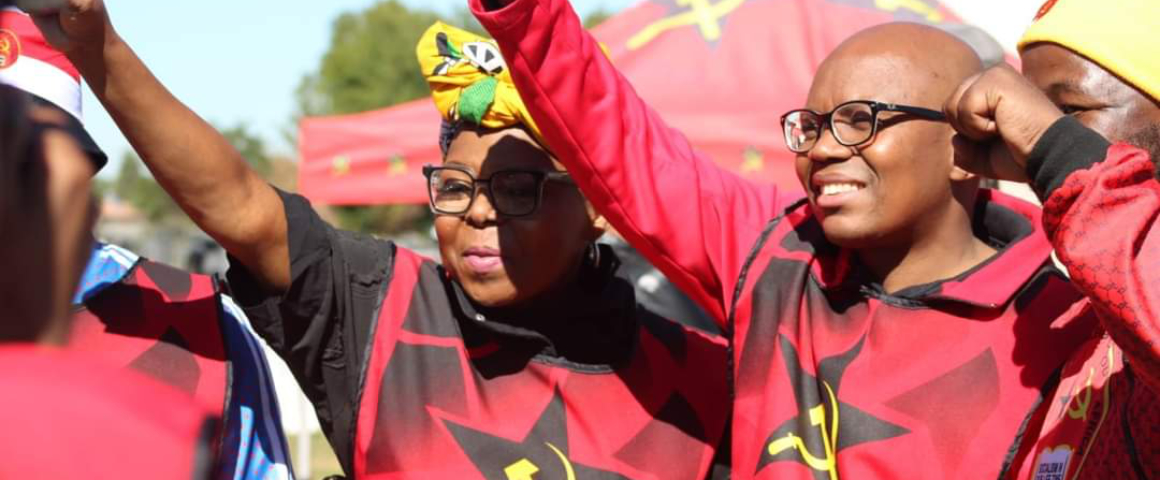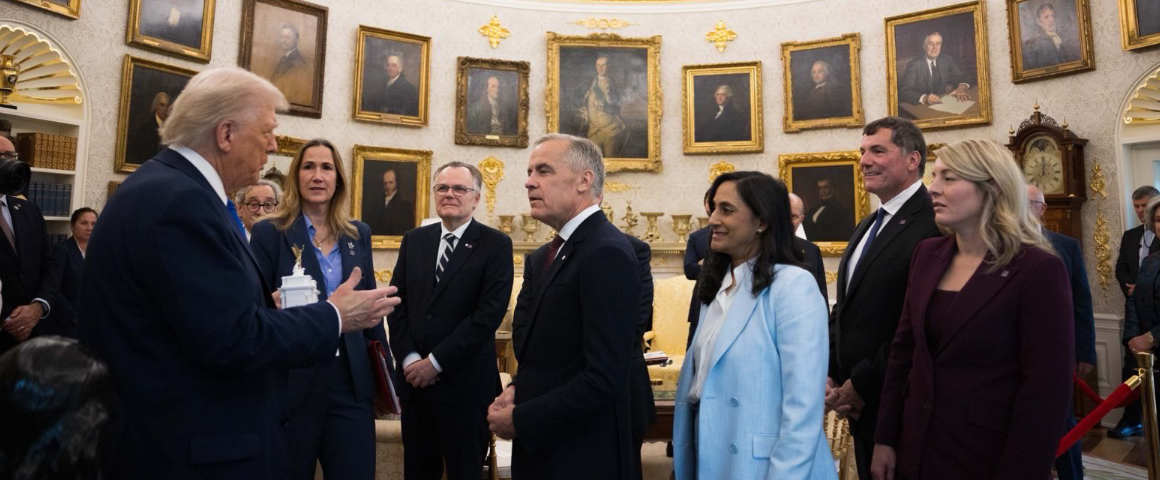PV staff
Immediately following the announcement of final election results on June 2, South African President Cyril Ramaphosa called for the country’s political parties to overcome their differences and find “common ground” to form South Africa’s first national coalition government.
Ramaphosa’s African National Congress received 40 percent of the vote in the May 29 election, giving it the largest share but denying it a majority. It is the first time the ANC has not won a majority in South Africa’s first free and democratic elections, and it opens the path for what have been called “unprecedented” coalition talks.
Arguing in favour of a coalition, which would allow the ANC to continue governing with partners, Ramaphosa said: “Our people have spoken. We have heard the voices of our people and we must respect their choices and their wishes. The people of South Africa expect their leaders to work together to meet their needs. This is a time for all of us to put South Africa first.”
The ANC’s decline in electoral support is tied to the government’s failure to resolve South Africa’s widespread poverty, an unemployment rate of 33 percent overall and 46 percent among young people, and ongoing problems with access to basic government services.
Among the ANC’s possible coalition partners are the new uMkhonto we Sizwe party (MKP) of former president Jacob Zuma and the populist Economic Freedom Fighters. Both of these parties have said they will nationalize South Africa’s gold and platinum mines, as well as other parts of the economy.
Many South African elites and foreign interests are strongly pressing for the ANC to ally with the right-wing Democratic Alliance (DA), the second-largest party in government. This will, no doubt, be a tempting offer for some in the ANC as it brings with it the possibility of increased “support” from foreign investors and powerful countries like Britain and the US.
SACP calls for “strategic consistency” against neoliberalism
In response to the election results and the swirling speculation of a governing coalition, the South African Communist Party (SACP) has called for the ANC and its allies in the labour movement to maintain “strategic consistency” against neoliberalism.
“We have campaigned against the anti-worker neoliberal and corrupt state capture networks. To maintain strategic consistency, the SACP is against seeking a coalition arrangement with the right-wing, DA-led anti-ANC neoliberal forces. The core of the DA-led neoliberal forces, highly supported by dominant sections of capital, mainly the white bourgeoisie whose roots can be traced to the era of colonial and apartheid oppression of the black majority, organized itself into the so-called multi-party charter. This grouping also received support from Western foundations.
“In the same vein, the SACP is against seeking a coalition arrangement with the MKP, whose origins can be traced back to factionalism, the corruption of state capture and resistance to accountability, as outlined in the report of the Commission of Inquiry into State Capture and related Constitutional Court judgments.”
In denouncing the drive toward neoliberal economic restructuring, the SACP called out the DA for its election campaign which opposed a national minimum wage, attacked collective bargaining and threatened cuts to the country’s national health insurance.
The Party also criticized the MKP for the “factional conduct and ethnic nationalism” of its leadership, many of whom were key players in what the SACP calls “industrial-scale looting under state capture [which] crippled many of our state-owned enterprises, public entities and financial resources, negatively impacting the capacity of our state to serve the people.”
As part of the Tripartite Alliance, along with the ANC and the Congress of South African Trade Unions (COSATU), the SACP has campaigned for the ANC in elections since 1990.
While the ANC lost its overall majority in the recent election, it did win an outright majority in the five provinces of Limpopo (73.3 percent), Eastern Cape (62.2 percent), North West (57.7 percent), Free State (51.9 percent) and Mpumalanga (51.2 percent). The SACP argues that this result still provides a basis for “advancing working-class interests across the board and considering the way forward nationally.”
Needed: concrete action for the working class
To pursue this aim, the Party says that the Alliance and progressive forces must be guided by the interests of the working class. And this means opposing “the strategic adversaries of the working class [which] include the neoliberal and ‘looting’ class networks, as well as fugitives from justice who have profited from state capture and fled South Africa to evade accountability.”
The SACP points to a number of concrete areas where ANC can lead a government while excluding both the DA and MKP, while insisting that the mobilization of the working class is key to moving forward:
“The interests of the working class encompass priorities such as large-scale employment creation to resolve the unemployment crisis through industrialization and structural economic transformation, poverty eradication, the implementation of a developmental and transformative macroeconomic policy to achieve these goals alongside other working-class interests.
“A more caring social policy, including a decisive advance towards a universal basic income grant and the rollout of the National Health Insurance to ensure quality healthcare for all, form part of crucial working-class interests.
“The protection of workers’ rights and other achievements, along with addressing challenges impacting the delivery of public goods and services, including infrastructure development and maintenance in municipalities, should be integral components of the programmatic basis of the coalition arrangements that our movement should seek.
“Rolling back austerity measures and other neoliberal policy prescriptions will be crucial for achieving an economic turnaround and ensuring the provision of essential social services, such as quality healthcare. This must be included in the programmatic basis of coalition arrangements.”
In addition to these domestic projects and policies, the SACP signaled that a progressive foreign policy based on peace, disarmament and international cooperation, cannot be sacrificed.
“Internationally, we remain firm in our unwavering support for the people of Palestine against the genocide on them and expropriation by the apartheid Israeli settler state.
“Maintaining the entire progressive thrust of South Africa’s international relations and co-operation policy, including deepening alignment with the BRICS Plus community of states and solidarity support for Cuba against imperialist aggression, should be upheld as part of the programmatic basis of the coalition arrangements that our movement should advocate for.”
Support socialist media!
If you found this article useful, please consider donating to People’s Voice or purchasing a subscription so that you get every issue of Canada’s leading socialist publication delivered to your door or inbox!
For over 100 years, we have been 100% reader-supported, with no corporate or government funding.




